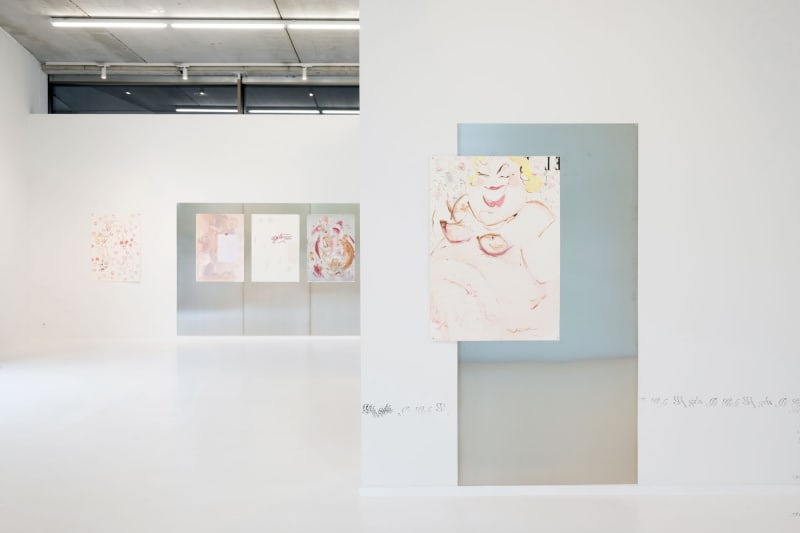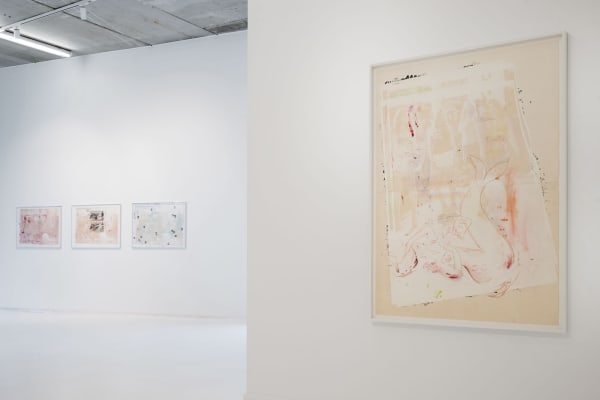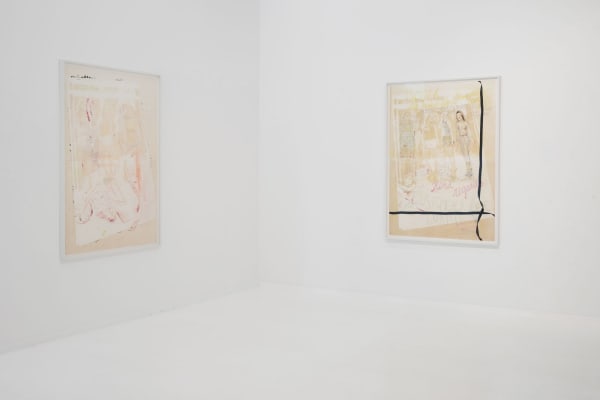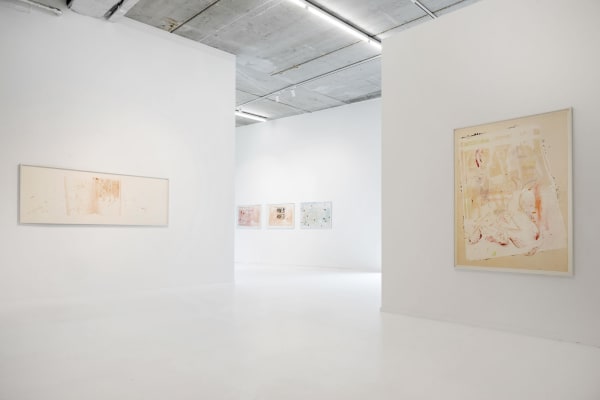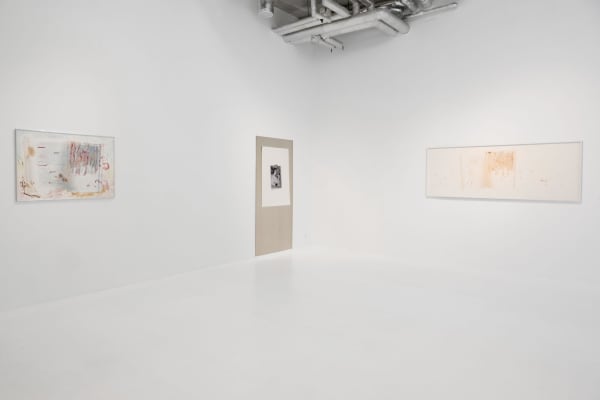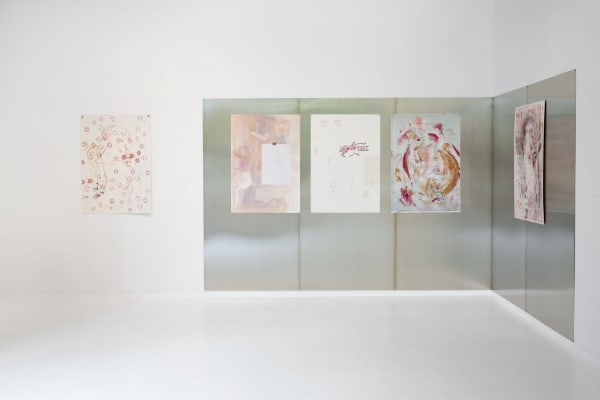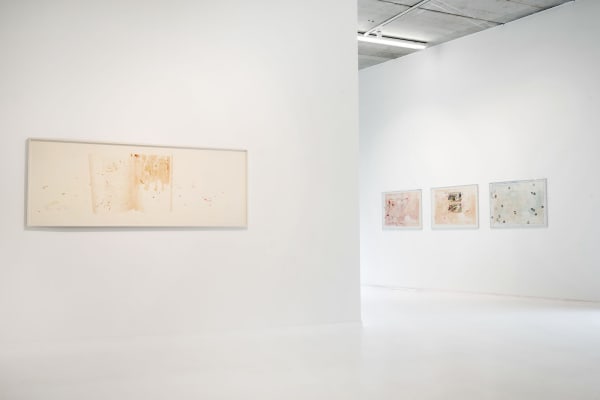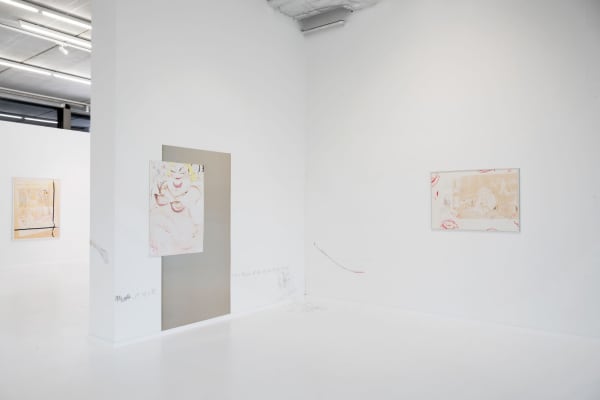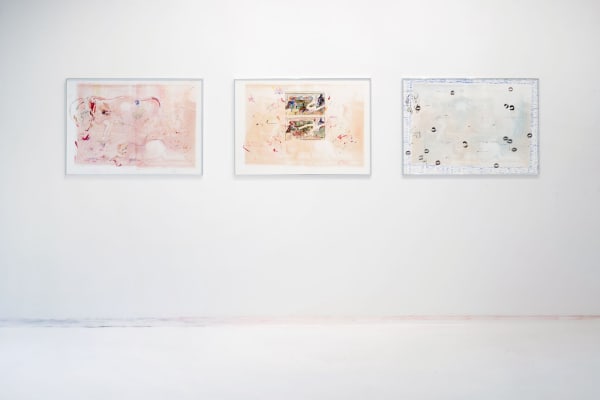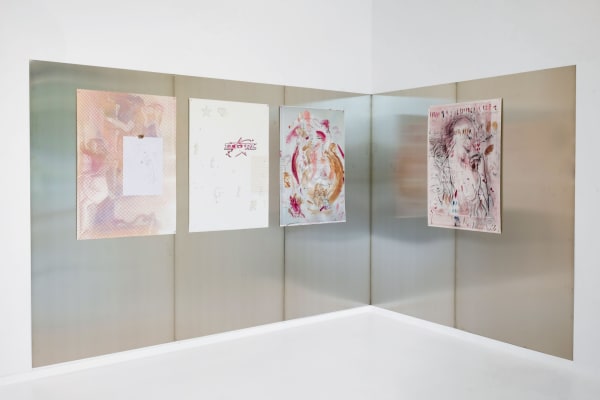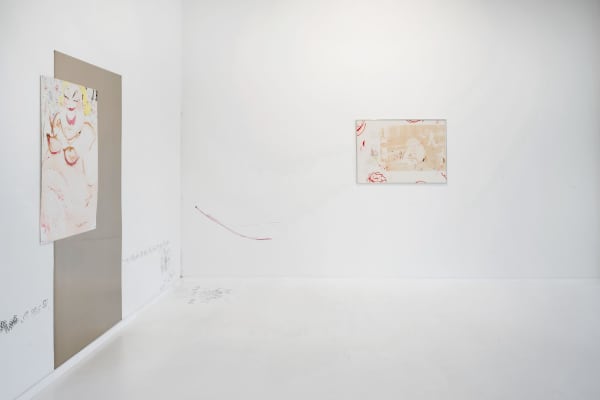It Girls: Natasja Mabesoone
Current exhibition
Overview
Ariel sings. Yeah
Ursula swallows her voice. Yeah
Marilyn walks naked into the metaphor. Yeah
A girl draws the curtain. Puts her finger between the spre@ds. Yeah
The Plastics pose, then turn. A subtle nod to the parentheses in the back. Yeah
(idk check appendix)
In her exhibition It Girls , Natasja Mabesoone explores the representation of the female body
as a site of artistic experimentation, using makeup as a transformative medium. Figures from
Western pop culture such as Ariel, Ursula, Marilyn Monroe, the Mean Girls, appear in shifting
forms. They are not merely portrayed as characters but staged as images: manifestations of
a visual grammar through which Mabesoone interrogates femininity as a cultural construct
- its aesthetics, its fetish, its surface.
These images are smeared, repeated, overprinted, stripped of their fixed, constructed form.
Mabesoone uses repetition not to simplify, but to complicate, to emphasize the layered
histories and appearances these figures carry. In their multiplicity, she reveals how
representations are built up and distorted, probing their instability and resistance to fixed
meaning.
The It Girl is not approached here as an individual, but as a projection: an image shaped by
pop and consumer culture, art history, and the mythology of girlhood. Like the Young-Girl
in Tiqqun’s Preliminary Materials for a Theory of the Young-Girl , Mabesoone’s It Girl is not
flesh and blood but a cultural position within the logic of late capitalism: both consumer and
consumed, form and format. Rather than centring the idealized female body, It Girls focuses
on how that body is constructed: technically, visually, and culturally. Mabesoone’s visual
language doubles as a commentary on image culture itself, echoed in her choice of
materials, traditionally coded as decorative or girlish: glitter, makeup, fake tattoos and
nailpolish. The work becomes layered and tactile, undermining the gravitas of the painting
canon. Mabesoone proposes a different way of looking and making: one that rejects
hierarchy, embraces ephemerality, and winks back at the viewer.
monotype and a near-performative form of drawing. Many works bear the imprint of touch,
a smeared lip, a finger, a smudge. Rather than taking the body as her subject, Mabesoone
shifts our attention to the surface: the skin of the paper, the residue of makeup, the dot of
the bitmap. As seen in the film Mean Girls (2004), teenage girls shape their identities
through gossip, appearanceand social codes. The Plastics carefully curate their image to
align with specific social groups. They design themselves as aesthetic projects, commodified
selves.
Marilyn Monroe too appears, not as a one-dimensional icon, but as a figure charged with
tension: between power and objectification, self-determination and myth-making.
Mabesoone shows how such icons detach from their origins and continue to circulate as
cultural constructs.
In Ariel, the little mermaid who gives up her voice to be loved, Mabesoone finds a potent
metaphor for the friction between desire and self-expression. Ariel trades language for legs,
her voice for sexual appeal. Ursula, by contrast, weaponizes that voice and performs it. She
embodies the threat of female autonomy: loud, flamboyant, unapologetic.
Another series references Drawing Room/The Living Room by the painter Balthus, whose
oeuvre, frequently criticized for its sexualisation of young girls, Mabesoone finds
controversial not only for its content, but for what it reveals about persistent power
dynamics in art. Who gets to look, who is being looked at, and how themes like gender, age,
and consent are handled under the guise of artistic genius.
Mabesoone’s work begins in ambiguity but never settles into binary oppositions. Her images
hover between emergence and erasure, between meaning and distortion. The figures she
portrays are neither heroines nor victims, but constructions - made, remade, and at times
sabotaged. They return in a choreography of shifting significations: like eyeshadow in
changing light, fluid forms of knowing, showing, and questioning.
Installation Views
